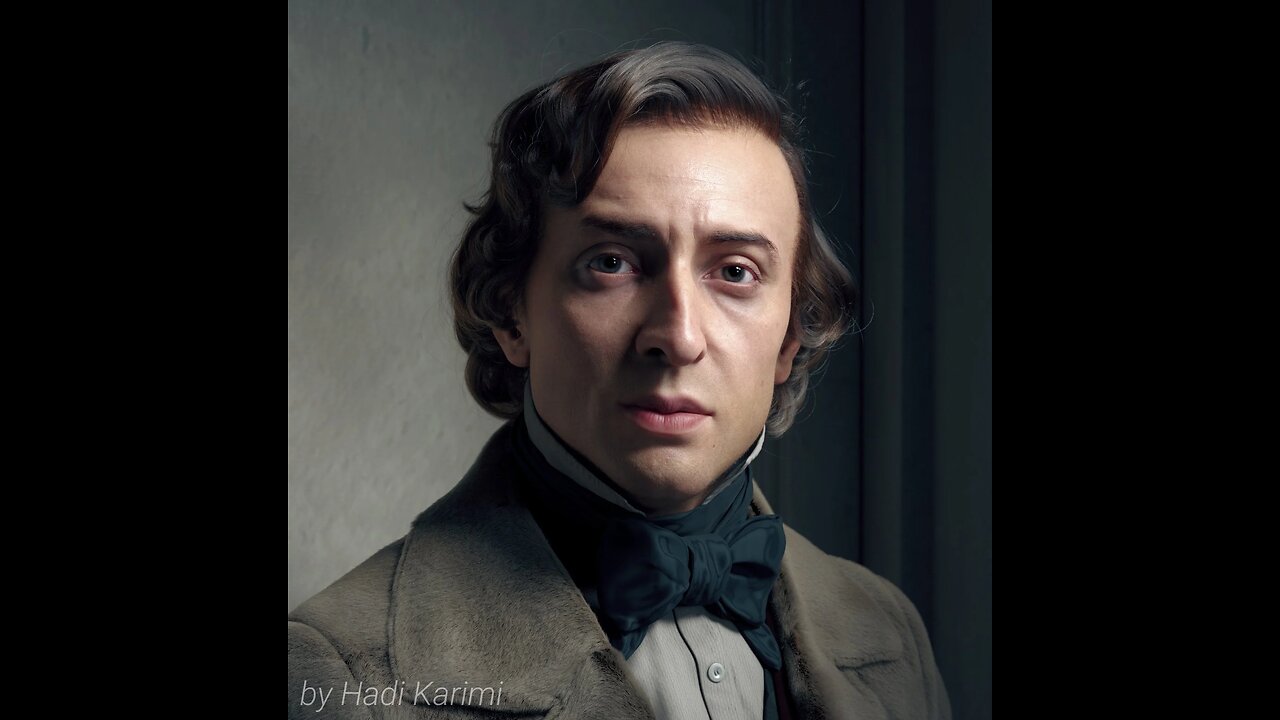Premium Only Content

Chopin. Nocturne Op 9 No 2 in E Flat Major
Frédéric François Chopin (born Fryderyk Franciszek Chopin; 1 March 1810 – 17 October 1849) was a Polish composer and virtuoso pianist of the Romantic period who wrote primarily for solo piano. He has maintained worldwide renown as a leading composer of his era whose "poetic genius was based on a professional technique that was without equal in his generation".
Chopin was born in Żelazowa Wola and grew up in Warsaw, which in 1815 became part of Congress Poland. A child prodigy, he completed his musical education and composed his early works in Warsaw before leaving Poland at age 20, less than a month before the outbreak of the November 1830 Uprising; at 21, he settled in Paris. Thereafter he gave only 30 public performances, preferring the more intimate atmosphere of the salon. He supported himself, selling his compositions and giving piano lessons, for which he was in high demand. Chopin formed a friendship with Franz Liszt and was admired by many musical contemporaries, including Robert Schumann. After a failed engagement to Maria Wodzińska from 1836 to 1837, he maintained an often-troubled relationship with the French writer Aurore Dupin (known by her pen name George Sand). A brief and unhappy visit to Mallorca with Sand in 1838–39 proved one of his most productive periods of composition. In his final years he was supported financially by his admirer Jane Stirling. In poor health most of his life, Chopin died in Paris in 1849 at age 39.
All of Chopin's compositions feature the piano. Most are for solo piano, though he also wrote two piano concertos before leaving Warsaw, some chamber music, and 19 songs set to Polish lyrics. His piano pieces are technically demanding and expanded the limits of the instrument; his own performances were noted for their nuance and sensitivity. Chopin's major piano works include mazurkas, waltzes, nocturnes, polonaises, the instrumental ballade (which Chopin created as an instrumental genre), études, impromptus, scherzi, preludes, and sonatas, some published only posthumously. Among the influences on his style of composition were Polish folk music, the classical tradition of Mozart and Schubert, and the atmosphere of the Paris salons, of which he was a frequent guest. His innovations in style, harmony, and musical form, and his association of music with nationalism, were influential throughout and after the late Romantic period.
Please subscribe to my Substack Channel:
https://juxtaposition1.substack.com/podcast
-
 38:45
38:45
Rehypothecation1
5 days agoJuxtaposition's Lexicon & Terminology
4721 -
 LIVE
LIVE
Dr Disrespect
8 hours ago🔴LIVE - DR DISRESPECT - ARC RAIDERS - FULL SEND INTO THE RED
1,523 watching -
 1:02:08
1:02:08
BonginoReport
2 hours agoNicki Minaj Speaks Out Against Christian Persecution - Nightly Scroll w/ Hayley Caronia (Ep.169)
9.17K13 -
 LIVE
LIVE
SpartakusLIVE
2 hours agoSNIPING in Battlefield 6 - REDSEC || Monday MOTIVATION to CONQUER the Week
79 watching -
 LIVE
LIVE
Nerdrotic
1 hour agoNerdrotic At Night 531
363 watching -
 LIVE
LIVE
TheCrucible
42 minutes agoWATCH PARTY! Coach Greg Adams vs Andrew Wilson: Marriage in the West is Good For Men (11/03/25)
1,275 watching -
 LIVE
LIVE
The Jimmy Dore Show
1 hour agoTrump Threatens to INVADE Nigeria! Kash Patel CRASHES OUT Over Jet Use Criticism!
5,289 watching -
 LIVE
LIVE
Conductor_Jackson
20 hours agoLet's Play Unrailed 2 Solo! 🚂🚂🚂🚂🚂🚂
28 watching -
 1:25:38
1:25:38
Kim Iversen
3 hours agoTrump’s Nigeria Threat Isn’t About Christians — It’s About China
63.3K55 -
 LIVE
LIVE
VikingNilsen
6 hours ago🔴LIVE - ARC RAIDERS - QUEST GRINDING
12 watching